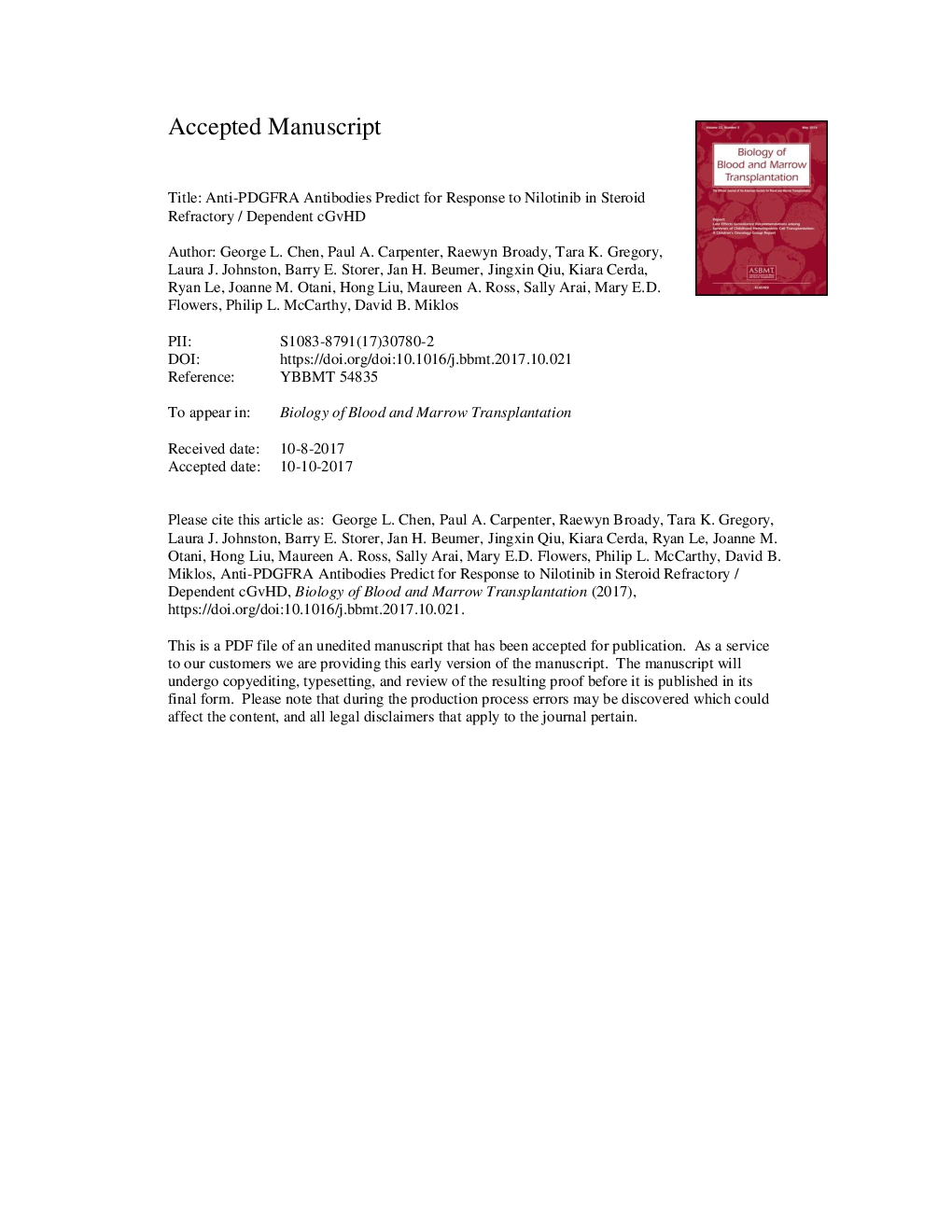| Article ID | Journal | Published Year | Pages | File Type |
|---|---|---|---|---|
| 8430361 | Biology of Blood and Marrow Transplantation | 2018 | 33 Pages |
Abstract
Imatinib has clinical activity in chronic graft-versus-host disease (cGVHD), a significant complication of allogeneic hematopoietic cell transplant. Nilotinib is a tyrosine kinase inhibitor that targets the same receptors as imatinib but with different affinities. We tested the hypothesis that nilotinib is safe and has clinical activity in cGVHD. Thirty-three participants were enrolled in a phase I/II dose escalation and dose extension clinical trial of nilotinib for the treatment of steroid-refractory or- dependent cGVHD (ClinicalTrials.gov, NCT01155817). We assessed safety, clinical response, and pretreatment anti-platelet-derived growth factor receptor alpha chain (anti-PDGFRA) antibody levels. The 200-mg dose was identified as the maximum tolerated dose and used for the phase II dose extension study. At 6 months the incidence of failure-free survival (FFS), cGVHD progression, and nilotinib intolerance resulting in its discontinuation was 50%, 23%, and 23%, respectively. cGVHD responses in skin, joints, and mouth were observed at 3 and 6 months based on improvement in respective National Institutes of Health organ severity scores. Pretreatment anti-PDGFRA antibody levels ⥠.150 optical density as measured by ELISA correlated with longer FFS time (Pâ<â.0005) and trended with time until cGVHD progression (Pâ<â.06) but not drug intolerance. Nilotinib may be effective for corticosteroid-resistant or -refractory cGVHD in some patients, but its use is limited by intolerable side effects. Selection of patients with high pretreatment anti-PDGFRA antibody levels might improve the risk-to-benefit ratio of nilotinib and better justify its side effects.
Related Topics
Life Sciences
Biochemistry, Genetics and Molecular Biology
Cancer Research
Authors
George L. Chen, Paul A. Carpenter, Raewyn Broady, Tara K. Gregory, Laura J. Johnston, Barry E. Storer, Jan H. Beumer, Jingxin Qiu, Kiara Cerda, Ryan Le, Joanne M. Otani, Hong Liu, Maureen A. Ross, Sally Arai, Mary E.D. Flowers, Philip L. McCarthy,
